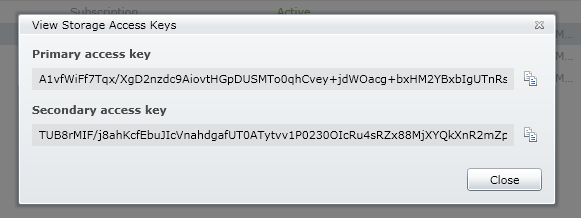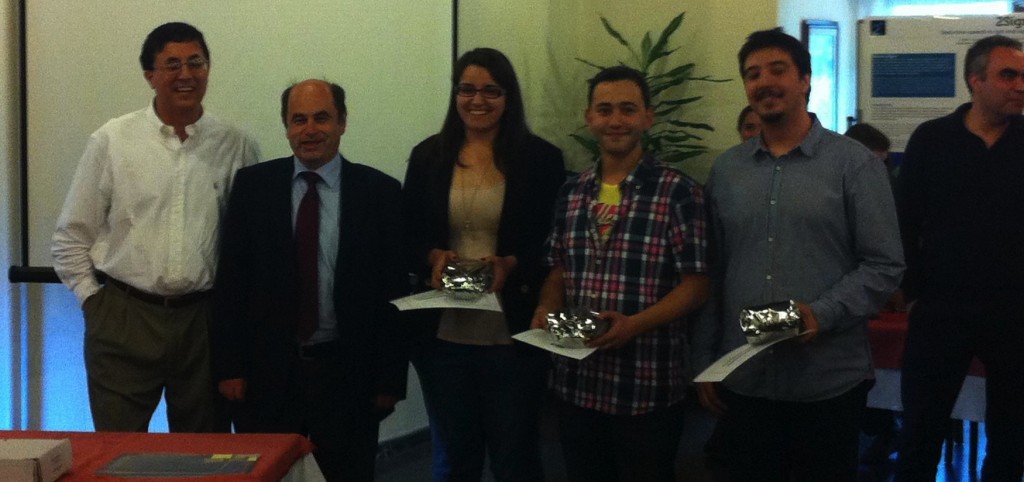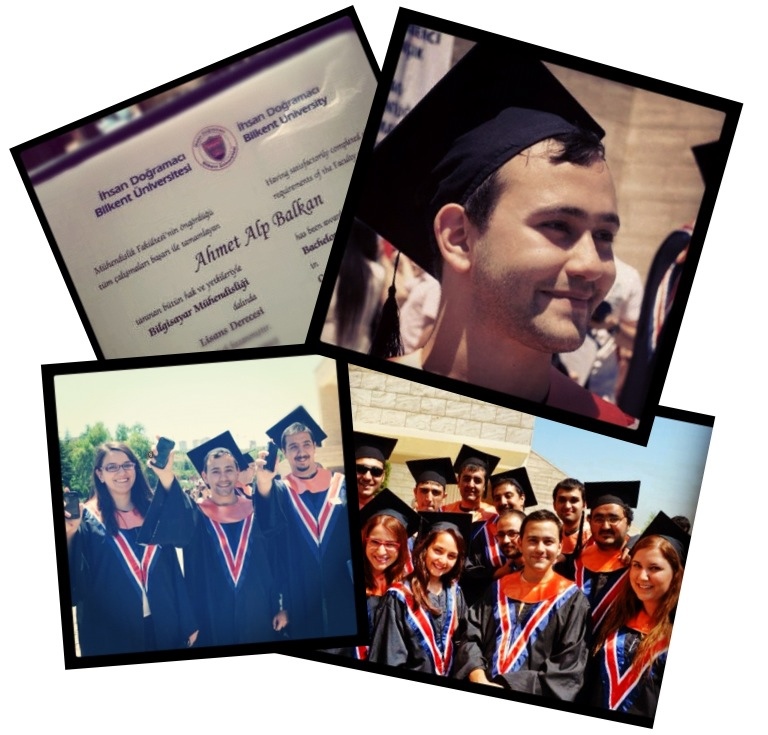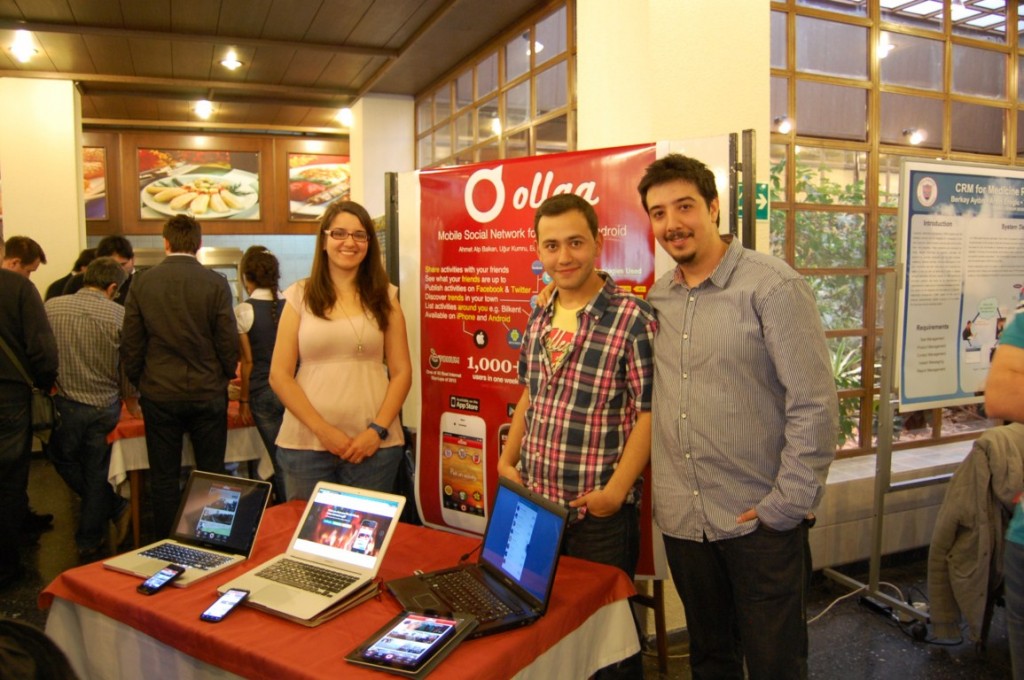-
Introducing AzureFS
Today I would like to intoduce my side project, AzureFS. It is an open source command-line tool to mount Windows Azure Blob Storage (an AWS S3 alternative) on your local filesystem and play with it just like you are doing with your local files. It is implemented in Python and it is a FUSE wrapper that works on UNIX environments.
Sometimes we need to list files under a container, transfer a bunch of local files to the cloud, remove files matching a specific name pattern, rename files on the cloud, move files accross containers etc. There are not any file explorer tools for Azure Storage on Linux that I know of, so I developed this.
AzureFS allows you to do such everyday task practically with commands like ls, mkdir, rm, cp, mv etc.
# Tutorial: Store database backups on the cloud
Installation of the environment is described on GitHub project page. It is up to you. Now let’s create a storage account from azure.com management portal. (You don’t need to sign up, of course, I’ll show you the demo here). Then obtain your primary access key:
 Create a directory with mkdir then we’ll mount our cloud storage onto it. (I’ll use my test account named “azurefs” here):
Create a directory with mkdir then we’ll mount our cloud storage onto it. (I’ll use my test account named “azurefs” here):
Don’t shut down this process, jump to some other tab, navigate into cloud directory and let’s create a directory named databases:

Then I’ll simply copy my database backups with cp command:

**That simple! **I have just backed up my data to the cloud.
Read more → -
Book Review: Programming iOS 5
I recently read half of Matt Neuburg’s book Programming iOS 5 as a part of my summer vacation to get introduced to a client-side platform. I was bored of working on back-end programs for many years and now I would like to discover dynamics of client programming.
First of all, this book is very long. I have read its ePub version, but the printed version is 1016 pages long. It has 40 chapters and tells many topics in details. However, I would like to tell you why I didn’t like it in the first place. The book tells about Objective-C language internals, iOS/Cocoa Framework internals very detailed. It is not designed in a cookbook or tutorial fashion. Instead, it tells you how the language works. I wish it would teach me “how to get things done” but halfway through the book (and skimmed the rest through the Table of Contents) I learned many details about the language and framework and nothing else at all.
Read more → -
Officially Graduated!
-
Ideas & Staying Focused
From Outliers: “Those three things - autonomy, complexity, and a connection between effort and reward - are, most people will agree, the three qualities that work has to have if it is to be satisfying.” — Malcolm Gladwell It basically explains the conditions for Internet startup founders should be in. Although it does not necessarily mean products should be over-engineered, the person being autonomous is indication of being independent so that there would be enough time for pursuing the success of the product.Read more → -
Usability Saves You Time
When there is someone around praising how great MacBooks and OS X are, people usually don’t understand the arguments. Power users are different – they often build their preference criteria around usability, boosting productivity, speed and, of course, coolness. Take a look at Firefox Heatmap study conducted in 2010 among Windows users. Here’s the thing: 94% used scroll bar, 98% used back button in a week. I don’t remember when I used these last time but I am very sure that it was at least a few weeks ago.Read more → -
Yol göstermek
Hayatınızda isimlerini unutmayacağınız, iz bırakabilen hocalarınız olmuştur. Bir şekilde süregelen düzene çomak sokup yeniliğin var olabileceğini gösterirler çevrelerine. Kendileri size ilham vermeseler de doğru yolun önünde durup sizi oraya çekmeye çalışırlar. Murat hoca da bunlardan biri, Bilkent’te visiting professor olarak geçirdiği birkaç aya rağmen bölümde kalıcı değişiklikler yapılmasını sağlayıp öğrencilere bir çok şey gösterdi. Lafı çok uzatmadan sizi hocamızın son derste sınıfa verdiği tavsiyelerden derlediği blog yazısıyla baş başa bırakıyorum.
-
Review: "CAP Twelve Years Later"
I prepared a one-pager review for Eric Brewer’s **article **(paid on IEEE Library) on CAP theorem a while ago, now publishing it.
# Review: “CAP: Twelve Years Later: How the Rules Have Changed”
In this article, Eric Brewer talks about how the distributed systems design paradigms and approaches are evolved since early 1990s when the CAP theorem coined by himself. According to the article, consistency (C), high availability (A) and partition tolerance (P) concepts slightly changed meanwhile and the notion of having at most of “2 of these 3” is no longer strict as it was before and can be seen as misleading today. He later on points out the connection between ACID–BASE philosophies and CAP theorem in distributed systems. Later on mostly his argument revolves around handling partitions so that a well CA (consistency-availability) can be achieved and work at a fine granularity by giving up only a bit.
Read more → -
Bilgisayar Bilimlerinin Başarısı by Chris Stephenson
Bilgi Üniv. CS bölüm başkanı değerli Chris hocanın bölümde verdiği **Bilgisayar Bilimlerinin Başarısı **konuşmasının videosunu burada bulabilirsiniz. Özellikle bilgisayar–yazılım alanında olmayanların da ilgisini çekecektir. Saymanın tarihçesinden matematiğin bütünlüğüne, bilgisayarın icadından güncel teknolojilerde bir çok konuya yüzeyden giriş yapan konuşmada beni etkileyen, automata theory hakkında noktaları birleştirmeme yardım eden bir çok konu gördüm. Şaşırma ve gülme garantili, mutlaka bir saatinizi ayırın:
-
Sustainable CS Senior Projects
Every year, tens of thousands of senior year Computer Science undergraduates are working on a whole year-long projects. Most of them go to waste after the course ends. Surely, people learn a lot out of these projects but at the end of the day several hundreds of man-hours are wasted besides the code. Code is trivial but “the change” isn’t. These senior-year projects can be sustainable in a way that authors, academia or people can get benefit out of them.Read more → -
Yılın Bitirme Projesi ödülünü aldık
Bölümde (Bilkent Bilgisayar Müh.) bitirme projesi olarak da yaptığımız ollaa ile bölümün bu dönemki en iyi bitirme projesi ödülüne layık görüldük. Hepimizin şimdiden bu projeden çok şey öğrendik. Başta takım arkadaşlarım cesur coder’lar Uğur Kumru ve Ecem Ünal’a, hocamız Prof. Fazlı Can’a ve yardımlarıyla emeği geçen diğer herkese teşekkürü buradan borç bilirim. Bu da böyle bir hatıramız olsun. :)


